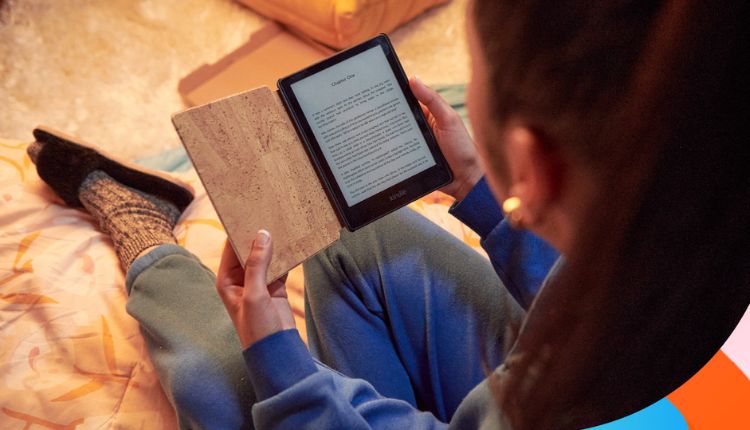The digital world revolutionised the way people consume information and fun. Today, the concept of “Read Free” has become a global movement that offers readers countless opportunities to explore content without financial obstacles. Whether through free online libraries, educational platforms, or entertainment sites, free reading opened knowledge, creativity, and growth for millions of people around the world.
Importance of “Read Free” in the digital era
When we think about reading free content, it refers to the accessibility of written materials such as books, articles, magazines, blogs, and stories without the need for payment. This shift in availability was made possible by the Internet, which connects readers with huge databases of information.
From free electronic books to digital archives, the idea of ”Read Free” is not only about saving money but also about supporting education and equal access to resources. It ensures that knowledge is no longer limited to those who can afford it but is shared with anyone looking for it.
Online libraries and platforms that support “Read Free”
The Internet hosts a wide range of platforms that allow people to read free materials across genres and objects. Public domain projects provide access to classical literature, while educational institutions often share research and articles for free. Blogging and community-controlled websites also contribute to this growing trend.
For students, scientists, and occasional readers, these platforms serve as a valuable source. They make it easier to explore new ideas, discover authors, and immerse oneself in genres without limiting traditional publishing costs.
Educational impact of free resources
Education is one of the industries that most benefits from free reading sources. Students in different parts of the world who lack access to expensive textbooks can now find digital versions or open educational resources online.
Teachers also rely on “Read Free” reading of materials to create lessons and enrich their classrooms. By reducing dependence on expensive academic sources, the concept of free reading ensures that knowledge can be extended in the same way. This helps to bridge the educational gap between privileged and disadvantaged students around the world.
Fun and free time via free reading
“Read Free” content is not limited to academic or professional growth. It has also become a source of entertainment for millions. People now enjoy free novels, stories, comics and fan fiction available on digital platforms.
Many writers have decided to share their work for free, build a global reader and connect with fans. For readers, this means endless opportunities to discover new talents and stories without worrying about financial investments. Reading free materials for leisure time will not only entertain but also deliver imagination, creativity and emotional well-being.
FREE PLATFORMS CHALLENGE FREE
While the benefits of free reading are significant, challenges should also be considered. One of the primary concerns is the quality and authenticity of free content. Not all materials available online are accurate or trustworthy; that can mislead the readers.
Another challenge is copyright issues, as some platforms may distribute the content without proper authorisation of authors or publishers. Despite these challenges, “Read Free” is still successful, supported by legitimate sources, open-access publishers and work from a public domain.
The role of technology in expanding “Read Free”
Technology plays a key role in allowing free reading. E-readers, mobile applications and websites provide user-friendly ways to access content anytime, anywhere. Cloud storage and digital libraries allow readers to store thousands of books without physical restrictions. Artificial intelligence and search engines also make it easy to find the right materials. With the help of technology, free reading has become more personalised, interactive and engaging and provided users with a trouble-free reading experience.
Global Reading Movement FREE
The concept of “Read Free” has become more than just a digital trend – now it’s a global movement. Many governments, organisations and NGOs are working on providing free access to books and learning resources for disadvantaged communities.
Initiatives such as free digital libraries, book-sharing programmes, and reading mobile applications change lives in regions where educational resources were once rare. This movement reflects the belief that reading and learning should be universal rights accessible to each individual, regardless of their economic background.
Future Reading Free Resources
As technology is constantly progressing, the future of free reading looks promising. With the growing popularity of publication and community platforms with open access, more content will be available at your disposal. The authors can decide to freely share their works to build a larger audience, while educational institutions will continue to expand their open resources. Virtual reality, artificial intelligence, and other technologies can also create free readings. The future of “Read Free” is likely to mix education, entertainment, and innovation, which will ensure that reading remains an essential part of human growth.
Conclusion
The idea of ”Read Free” is the transformation of how the world consumes information and entertainment. It breaks barriers and makes knowledge and stories available for all. From education to leisure time, free reading has a deep impact on individuals and communities around the world. Although there are challenges such as quality control and copyright problems, the benefits far outweigh the obstacles. As technology develops and global efforts to support free access continue, the future of free reading promises endless opportunities for learning, growth, and creativity.
FAQs
What does reading mean?
Free reading refers to access to books, articles, magazines, and other written materials without paying for them, usually through online platforms or public domain sources.
Is free content reading?
Yes, if the content of legitimate sources, such as public domain archives, publishers with open access or authors who willingly share their work for free.
Can I use free reading platforms for education?
Absolutely. Many students and teachers benefit from free reading platforms provided by textbooks, research work, and educational articles without cost.
Are they safe for free reading?
Most legitimate platforms are safe, but readers should be careful of unauthorised websites that can illegally share copyrighted materials.

